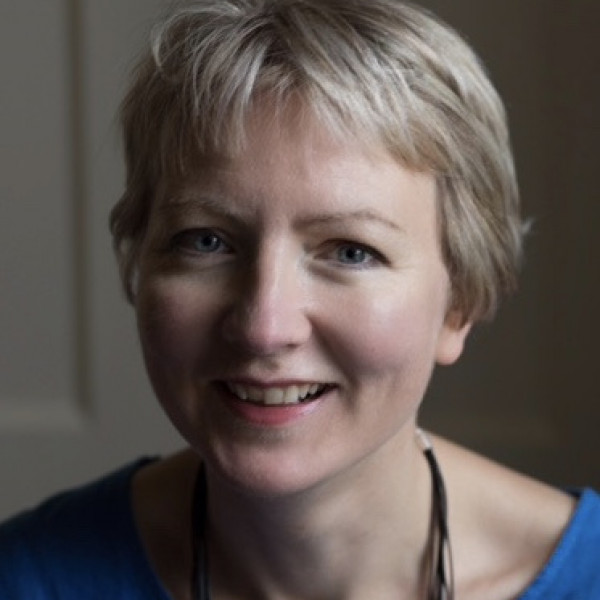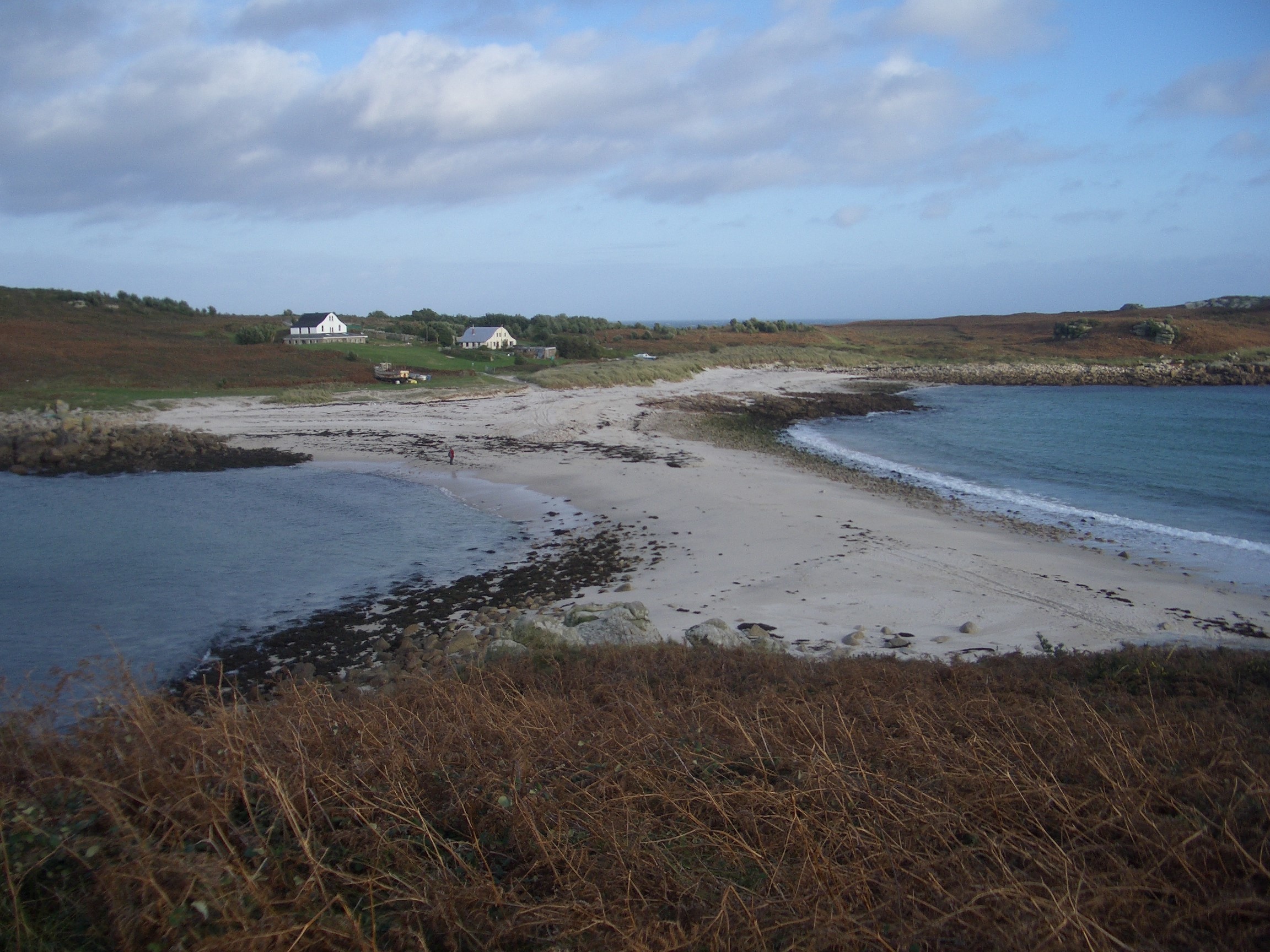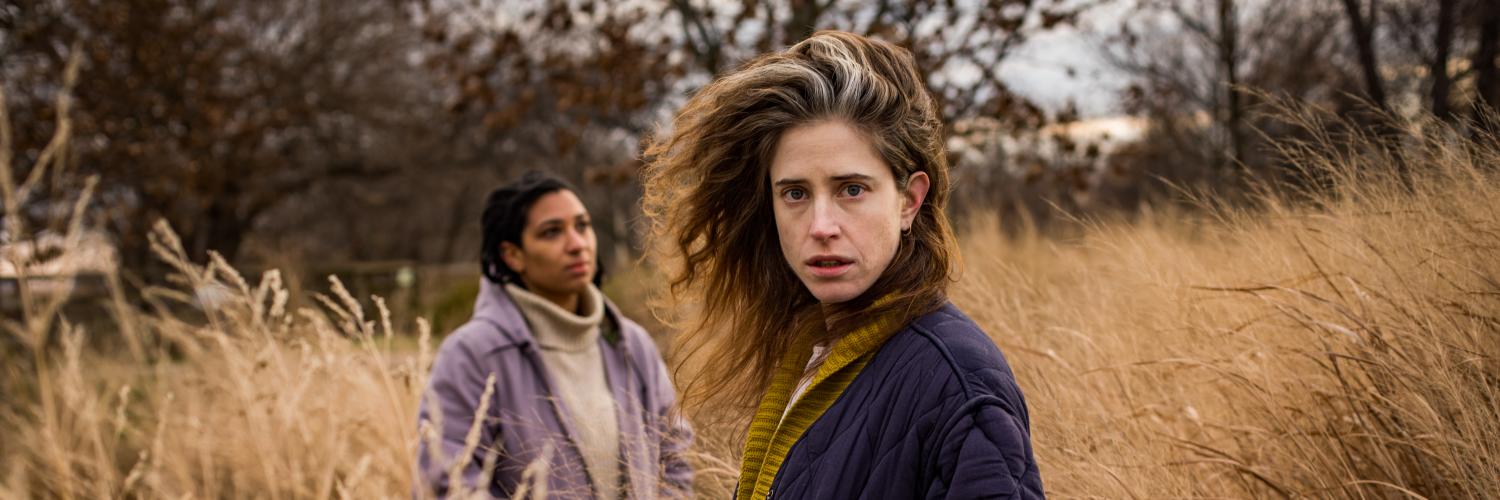Dramaturgy provided by Chelsea Drumel
Contents
Play Synopsis | About the Playwright | Disenfranchised Grief | Orpheus and Eurydice
Supplementary Tools | Glossary
Play Synopsis
ROBYN there is a strange place called grief and all the
rules are changed. surprise yourself. how much do you love me? try.
Two women wash up on a distant shore following a violent boating accident. Dazed by their experience, they look for a path home. But they discover that this unfamiliar land is not what it seems - and that, though they may be together, they have never been further apart.
About the Playwright
 Zinnie Harris is a multi-award winning playwright, screenwriter and theatre director. She first came to prominence in 2000 with her early play FURTHER THAN THE FURTHEST THING (Tron Theatre/ Royal National Theatre) which won the Peggy Ramsay Playwriting Award, the John Whiting Award and a Fringe First Award and has now been translated and performed all over the world. Her recent plays include THE DUCHESS (of Malfi) (Royal Lyceum Theatre, Citizens Theatre), MEET ME AT DAWN, (Traverse Theatre / Edinburgh International Festival), THIS RESTLESS HOUSE (Citizens Theatre / National Theatre of Scotland / Edinburgh International Festival), winner of Best New Play at the Critics’ Awards for Theatre in Scotland 2016, and shortlisted for Susan Smith Blackburn Award and UK Theatre Awards Best New Play; and HOW TO HOLD YOUR BREATH (Royal Court Theatre), winner of the Berwin Lee Award 2015. Her adaptations for the stage include RHINOCEROS (Edinburgh International Festival) A DOLL’S HOUSE (Donmar Warehouse) MASTER BUILDER (West Yorkshire Playhouse) and MISS JULIE (National Theatre of Scotland). Her screen writing includes two 90 minute dramas for Channel 4 (RICHARD IS MY BOYFRIEND and BORN WITH TWO MOTHERS), and episodes for the BBC1 Drama SPOOKS. She was lead writer and Series Creator for the BBC1 Agatha Christie adaption, PARTNERS IN CRIME. As a theatre director she has directed numerous main stage productions for the RSC, the Traverse Theatre, Royal Lyceum Theatre, and the Tron theatre. She won Best Director for the CATS 2017, for her direction of Caryl Churchill’s A NUMBER at the Lyceum Theatre, and recently directed THE DUCHESS (of Malfi) to much acclaim at the Citizens Theatre / Lyceum Theatre. She is an Associate Director of the Royal Lyceum Theatre and Professor of Playwriting and Screenwriting at the University of St Andrews.
Zinnie Harris is a multi-award winning playwright, screenwriter and theatre director. She first came to prominence in 2000 with her early play FURTHER THAN THE FURTHEST THING (Tron Theatre/ Royal National Theatre) which won the Peggy Ramsay Playwriting Award, the John Whiting Award and a Fringe First Award and has now been translated and performed all over the world. Her recent plays include THE DUCHESS (of Malfi) (Royal Lyceum Theatre, Citizens Theatre), MEET ME AT DAWN, (Traverse Theatre / Edinburgh International Festival), THIS RESTLESS HOUSE (Citizens Theatre / National Theatre of Scotland / Edinburgh International Festival), winner of Best New Play at the Critics’ Awards for Theatre in Scotland 2016, and shortlisted for Susan Smith Blackburn Award and UK Theatre Awards Best New Play; and HOW TO HOLD YOUR BREATH (Royal Court Theatre), winner of the Berwin Lee Award 2015. Her adaptations for the stage include RHINOCEROS (Edinburgh International Festival) A DOLL’S HOUSE (Donmar Warehouse) MASTER BUILDER (West Yorkshire Playhouse) and MISS JULIE (National Theatre of Scotland). Her screen writing includes two 90 minute dramas for Channel 4 (RICHARD IS MY BOYFRIEND and BORN WITH TWO MOTHERS), and episodes for the BBC1 Drama SPOOKS. She was lead writer and Series Creator for the BBC1 Agatha Christie adaption, PARTNERS IN CRIME. As a theatre director she has directed numerous main stage productions for the RSC, the Traverse Theatre, Royal Lyceum Theatre, and the Tron theatre. She won Best Director for the CATS 2017, for her direction of Caryl Churchill’s A NUMBER at the Lyceum Theatre, and recently directed THE DUCHESS (of Malfi) to much acclaim at the Citizens Theatre / Lyceum Theatre. She is an Associate Director of the Royal Lyceum Theatre and Professor of Playwriting and Screenwriting at the University of St Andrews.
(Bio Courtesy of the National Theatre of Scotland)
Disenfranchised Grief
In the instance of Meet Me At Dawn, we encounter an entirely different kind of grief. It is of the utmost importance to recognize that Meet Me At Dawn is a story about two women in love. Robyn and Helen’s experience of loss is inherently affected by the sociopolitical circumstances of this fact. Disenfranchised grief refers to grief that is not fully acknowledged, recognized, or supported by society. While not necessarily reflected in the text of the play, look for clues to the impact Robyn and Helen’s identities have on their loss and experience. There is a heartbreaking lack of research on loss for LGBTQIA+ people available, or even stories, to provide comfort. Amongst the limited literature on the topic is an article published by the Journal of LGBT Issues in Counseling; authors Bryan McNutt and Oksana Yakushko dive into this more deeply, observing that “The emotional challenges of adjusting to life after the death of a loved one become significantly complicated when there is a lack of social recognition and validation of the relationship that a bereaved person experienced.”
Orpheus and Eurydice
A major point of inspiration for Harris in writing Meet Me At Dawn was the myth of Orpheus and Eurydice. As a myth born of Ancient Greece, there is no end to the limit of research we could dive into. By the far the most useful text I’ve found has been Harris’ own words, linked here in a guest blog she penned when Meet Me At Dawn was in rehearsals for a production at the Arcola Theatre in 2019. The full article is linked here.
Connected Media List:
A collection of ASMR, podcast interviews, and dramaturgically relevant tunes.
Meet Me at Dawn board on Pinterest
Videos
I wanted to write something that tells a story of the kind of madness of thought that one can get lost in when one is experiencing quite profound grief.
- Zinnie Harris, Zinnie Harris on Meet Me At Dawn | 2017 International Festival
“I was writing it out of an experience of grief, not of sudden death but of a to a sudden end of marriage that sort of happened over night, so I was in my own grief. But one of my own understandings I came to is: your life is going on a tram track, and then something happens which means that you’re no longer traveling in that direction...but your head and your emotional life still wants to carry on here.”
- Zinnie Harris, Dan Rebellato, Playwrights in Lockdown: Zinnie Harris
“You are going to stretch what the audience will believe or is capable of. I think part of being a human is to try and explore different ways of telling stories...we need to act out, we need to rehearse moments, we need to imagine. I think theatre and storytelling in that way is as much part of being human as anything else that we do.””
- Zinnie Harris | 2017 International Festival Portrait, Edinburgh International Festival
Press Interviews
Interview from The Skinny, 2017
“The thing about grief is it's all about love, because you can't experience grief without having loved something or someone. And it turned out that writing a play about grief was the perfect place to explore the various ways in which we grieve a loss, and the often complex emotions involved during the process. Theatre, for me, is a contemplation of what it means to be human. It suits grief; it is a place of wishes.”
Interview from The Guardian, 2000
“She has also been heavily involved in community projects, running writers' workshops for women prisoners in Askham Grange prison in York and HIV-positive patients at Edinburgh's Milestone House. It is the work for Milestone that touched Harris most deeply. She has already written about it in her play By Many Wounds, but now believes this may have been too quick a response to such a moving experience, and that she will come back to it.
Glossary
A fat lot: Idiom; informal or sarcastic meaning “little to none” – if you say something is a “fat lot of good” you are saying that it is no good – more details on the etymology listed here
 Concussion: A type of traumatic brain injury caused by a bump, blow, or jolt to the head that causes the head and brain to move rapidly back and forth
Concussion: A type of traumatic brain injury caused by a bump, blow, or jolt to the head that causes the head and brain to move rapidly back and forth
Cross: A commonly used phrase in British English meaning “annoyed” or “angry
Dementia: Dementia is an umbrella term used to describe a range of neurological conditions affecting the brain that worsen over time. It is the loss of the ability to think, remember, and reason to levels that affect daily life and activities. Some people with dementia cannot control their emotions and other behaviors, and their personality may change.
Desiccated: Having had all moisture removed; dried out
Dim recesses: If you refer to the recesses of someone’s mind or soul, you are referring to thoughts or feelings they have which are hidden or difficult to describe
 Jumper: In British English, the term jumper describes what is called a sweater in American English – typically means a garment that you put on over your head worn during colder months to insulate against the cold
Jumper: In British English, the term jumper describes what is called a sweater in American English – typically means a garment that you put on over your head worn during colder months to insulate against the cold
.jpg) Marooned: Leave (someone) trapped and isolated in an inaccessible place; especially an island
Marooned: Leave (someone) trapped and isolated in an inaccessible place; especially an island
Mucking about: British slang to mean spending time doing things that are not useful or serious or to waste time, ie, “we just mucked about all day”
"right as rain”: An idiom to mean in good order or in good health
 Sandbank: A deposit of sand forming a shallow area in the sea
Sandbank: A deposit of sand forming a shallow area in the sea
Seaworthy: (of a vessel) in a good enough condition to safely sail on the sea
"tits up”: A British idiom to mean to have a poor, undesired, or ruinous outcome
